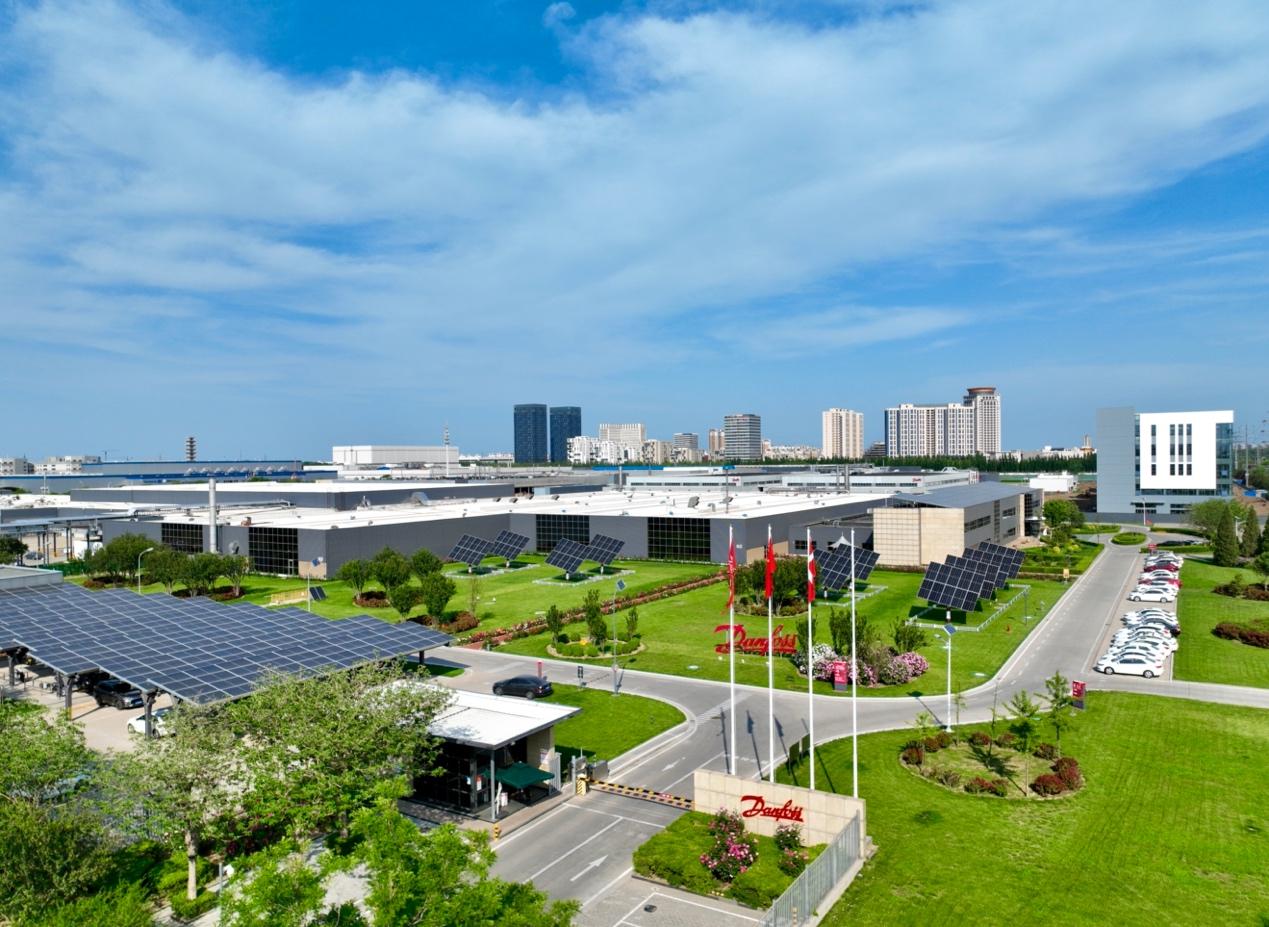
 0 Comment(s)
0 Comment(s) Print
Print E-mail Xinhua, January 24, 2024
E-mail Xinhua, January 24, 2024

This aerial photo taken on July 5, 2023 shows the Tianjin factory of Danfoss, a global refrigeration industry giant, in north China's Tianjin. [Photo/Xinhua]
Danfoss, a multinational engineering giant, has an ambitious plan to cut 400,000 tonnes of carbon emissions per year. Just one factory in China will contribute 7 percent of that goal.
This year, Danfoss' factory in north China's Tianjin Municipality is reducing its emissions by 28,000 tonnes with the adoption of green power.
Foreign investors in China find their global carbon footprint diving as the country rolls out green power -- electricity generated from renewable energy sources.
"It is a milestone for Danfoss to realize the carbon neutrality goal," said Arthur Xu, president of the China branch of the engineering giant focused on providing climate change solutions.
Executives of foreign companies in China shared their eagerness to use more green power recently at a meeting in Tianjin.
"Purchasing green electricity is high on the agenda," said Niu Huiyun, EHS manager of Weilburger Coatings (Tianjin) Limited. Headquartered in Weilburg Germany, the company makes rail transit coatings and high-temperature non-stick coatings.
Green power not only cuts carbon emissions but also increases production efficiency by more than 10 percent because it has lower prices and is less affected by power rationing policies, Niu said.
"A substantial increase in green power trading can better help foreign companies improve energy efficiency, reduce carbon emissions, and achieve low-carbon development," said Chang Yadi, deputy director of the trading department of Tianjin Electricity Trading Center.
European aircraft manufacturer Airbus also regards "green power" as one of the important channels to achieve carbon neutrality in its global operations.
Since 2022, Airbus China has continued to expand its investment in green electricity, purchasing and using green electricity in its Tianjin campus and Beijing campus. All campuses in China are expected to be supplied with green electricity by 2030.
From October 2022 to the end of July 2023, Airbus' Tianjin campus purchased 11,321 MWh of green electricity, accounting for 45 percent of the total electricity consumption during the same period, reducing 6,992 tonnes of carbon dioxide emissions.
"Helping the realization of net-zero carbon emissions in the global aviation industry by 2050 is a long-term strategy for Airbus. We will continue to promote the sustainable development of the industry, which is also a positive response to China's dual carbon goals," George Xu, Airbus executive vice president (EVP) and Airbus China CEO said.
To promote the use of renewable energy, China has rolled out the trading of green power and green electricity certificates. According to China's National Energy Administration, as of the end of October 2023, a total of 87.8 billion kWh of green electricity has been purchased, involving 148 million certificates, which serve as proof that the electricity has been generated using renewable energy sources.